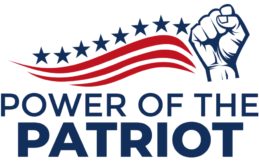Trump’s Holy Crusade: Purging the ‘Anti-Christian’ Heretics from Federal Bureaucracy

In a move that has the secular left clutching their pearls, President Donald Trump has unveiled his latest initiative: a full-scale assault on what he deems ‘anti-Christian bias’ within the federal government. At the recent National Prayer Breakfast, Trump announced the formation of a task force, helmed by newly minted Attorney General Pam Bondi, to root out this alleged discrimination lurking in the hallowed halls of agencies like the DOJ, IRS, and FBI. Because, as we all know, the real threat to America isn’t foreign adversaries or economic woes—it’s those pesky bureaucrats with their covert secular agendas.
Trump’s executive order doesn’t just stop at creating a task force. No, that’s merely the opening act. He’s also establishing a Presidential Commission on Religious Liberty and resurrecting a White House Faith Office, placing televangelist Paula White-Cain at its helm. One can only imagine the divine interventions that will now guide policy decisions. Perhaps next we’ll see cabinet meetings commence with a laying on of hands.
The President, never one to miss an opportunity for self-aggrandizement, linked his newfound fervor to his personal brush with mortality—surviving two assassination attempts during his campaign. ‘These events have a way of making you find God real quick,’ he quipped, suggesting that dodging bullets has brought him closer to the Almighty. It’s a conversion story for the ages: from reality TV star to the chosen one, anointed to cleanse the federal government of its sins.
Critics, of course, are up in arms. They argue that this initiative is less about protecting religious freedom and more about enshrining a particular brand of Christianity into government operations. The ACLU has already signaled concerns, suggesting that this could lead to policies that favor certain religious beliefs over others, potentially infringing on the Establishment Clause. But in the Trumpian worldview, such concerns are mere distractions from the holy mission at hand.
Supporters, particularly within evangelical circles, are hailing this as a monumental victory. Finally, they say, there’s a champion in the White House willing to stand up against the secular tide that’s been eroding traditional values. Never mind the fact that this ‘secular tide’ includes a diverse tapestry of beliefs that make up the American populace. In this narrative, it’s a battle of good versus evil, and Trump has firmly planted his flag on the side of the angels.
One can’t help but marvel at the timing. With re-election secured, and amidst various legal entanglements, the President has found religion—or at least, a convenient rallying cry to shore up his base. It’s a classic play: when in doubt, appeal to faith and portray yourself as the defender of the righteous against the godless hordes.
As this task force begins its holy work, one must wonder what forms this ‘anti-Christian bias’ has taken. Are there clandestine atheist cells operating within the IRS? Is the FBI secretly plotting to undermine church bake sales? Or perhaps the DOJ has been infiltrated by secular humanists intent on removing ‘In God We Trust’ from our currency. The possibilities are as endless as they are absurd.
In the end, this initiative is less about addressing genuine issues of religious discrimination and more about solidifying a narrative—a narrative where Trump is the savior of a besieged Christian America, valiantly fighting against the encroaching darkness of secularism. It’s a story tailor-made for his supporters, offering a clear villain and a heroic protagonist. Facts and constitutional concerns be damned; in this saga, righteousness prevails.
So, as the task force embarks on its mission to cleanse the federal government of its alleged anti-Christian bias, we can all look forward to the forthcoming reports detailing their findings. Will they uncover a vast conspiracy, or will this be yet another exercise in political theater? Only time will tell. But one thing is certain: in Trump’s America, the lines between church and state are becoming increasingly blurred, all in the name of protecting religious freedom.
